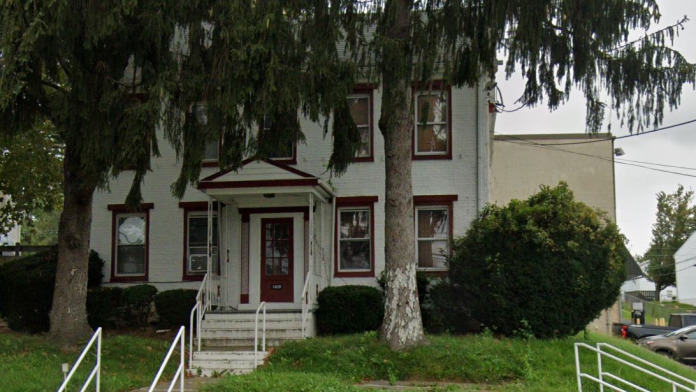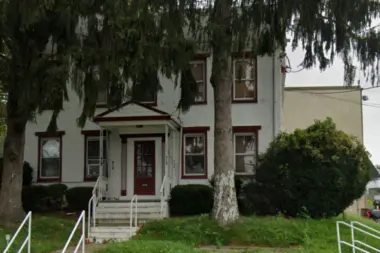About Hogar Crea – Women’s Center
One of the neatest things about this facility is that they follow a model called Therapeutic Community. Basically, this means you’ll participate in various recovery based challenges spread out across a few different phases. The challenges will get progressively harder and the program takes about 20 months in all to complete. To complete each one, you’ll need to lean on others around you.
You might think you’re just trying to win a challenge, but what you’re really doing is redefining your character. As you learn to communicate and work strategically with your peers, you’ll build your self esteem and slowly reduce your dependence on harmful substances. You’ll become more responsible because you’re no longer just looking out for yourself. You know others are depending on you to help them move from one stage to the next.
As you work through each phase, you’ll receive therapies and interventions to help you address your addiction and any underlying conditions. Some of the psychosocial themes you’ll discuss include confidence, autonomy, commitment, and initiative.
One person who’s gone through this program said it saved her life. She credits her current sobriety to the life skills she learned and the friendships she made here. Another woman says that her experience taught her recovery means more than just putting down drugs or alcohol. It means changing one’s mindset and connecting to a higher power.
Latest Reviews
I am sorry that you have that impression about our amazing organization that has saved thousands of lives in more than 45 years.
Hogar CREA is a non-profit organization with a concept framed in a therapeutic community where we help the neediest people. The majority of our participants have no family support or are homeless. Not all of our participants have drug or alcohol addiction issues either. We work with the character of our participants so that they acquire habits, manners and positive qualities.
Our concept of re-education is a process that takes years and we teach, for example, how to express themselves better, acquire responsibilities, create healthy habits, etc., so when they return to the community they can be productive members of our society.
I also wanted to highlight that is a completely free program.
Most of the time the organization covers all the basic needs of the participants because, as I mentioned, most of them are homeless and do not have family or anyone at all.
We do not receive federal or state funds and we do not bill participants' health insurance, we never have and never will. Our participants do not need health insurance to enter the program either. That’s why it’s completely free.
I can tell you that as part of our services we help the participants obtain health insurance so they can start taking care of all their medical needs which many have neglected because of life circumstances. And, we not only assist in making the appointments we always provide full transportation to and from appointments.
Now, you may wonder how we can afford all these expenses?
Well in the same way we have for over 40 years is that we confect baked goods and offer them in our local community to raise funds and be able to pay for all of the expenses that the center has.
Hogar CREA is an autonomous program and we are proud to be one, as part of the re-education process we help our participants to strengthen their autonomy, to be responsible and hardworking.
I invite you to stop by one of our centers so you can learn more about the great work all the participants, staff, employees, graduates, family members, steering committee and many more do here.
Hogar CREA is community program that serves the community.
God bless you
Rehab Score
Gallery


Other Forms of Payment
Self-pay involves paying for treatment out of your own pocket. You can use savings or credit, get a personal loan, or receive help from family and friends to fund your treatment. If you don't have insurance or your insurance plan doesn't cover a specific program, self-pay can help ensure you still get the care you need.
Medicaid is a state based program that helps lower-income individuals and families pay for healthcare. Medicaid covers addiction treatment so those enrolled can use their coverage to pay for rehab. When a program accepts Medicaid the client often pays very little or nothing out of their own pocket.
Medicare is a federal program that provides health insurance for those 65 and older. It also serves people under 65 with chronic and disabling health challenges. To use Medicare for addiction treatment you need to find a program that accepts Medicare and is in network with your plan. Out of pocket costs and preauthorization requirements vary, so always check with your provider.
Addiction Treatments
Levels of Care
Outpatient Programs (OP) are for those seeking mental rehab or drug rehab, but who also stay at home every night. The main difference between outpatient treatment (OP) and intensive outpatient treatment (IOP) lies in the amount of hours the patient spends at the facility. Most of the time an outpatient program is designed for someone who has completed an inpatient stay and is looking to continue their growth in recovery. Outpatient is not meant to be the starting point, it is commonly referred to as aftercare.
Intensive Outpatient Programs (IOP) are for those who want or need a very structured treatment program but who also wish to live at home and continue with certain responsibilities (such as work or school). IOP substance abuse treatment programs vary in duration and intensity, and certain outpatient rehab centers will offer individualized treatment programs.
12-step programs are addiction recovery models based on Alcoholics Anonymous (AA). A number of substance abuse programs (including some drug and alcohol rehab centers) use the 12 steps as a basis for treatment. Beginning steps involve admitting powerlessness over the addiction and creating a spiritual basis for recovery. Middle steps including making direct amends to those who've been hurt by the addiction, and the final step is to assist others in addiction recovery in the same way. 12-Step offshoots including Narcotics Anonymous (NA), Cocaine Anonymous (CA), Dual Recovery Anonymous (DRA), Sex and Love Addicts Anonymous (SLAA) and Gamblers Anonymous (GA).
Completing a drug or alcohol rehab program shouldn't spell the end of substance abuse treatment. Aftercare involves making a sustainable plan for recovery, including ongoing support. This can include sober living arrangements like halfway houses, career counseling, and setting a patient up with community programs like Alcoholics Anonymous (AA) or Narcotics Anonymous (NA).
Treatments
The goal of treatment for alcoholism is abstinence. Those with poor social support, poor motivation, or psychiatric disorders tend to relapse within a few years of treatment. For these people, success is measured by longer periods of abstinence, reduced use of alcohol, better health, and improved social functioning. Recovery and Maintenance are usually based on 12 step programs and AA meetings.
Drug rehab in Pennsylvania is devoted to the treatment of addiction. Levels of care, treatment methods, and settings differ, but the aim of each program is to end drug dependency and empower participants to achieve long-term recovery.
Opioid rehabs specialize in supporting those recovering from opioid addiction. They treat those suffering from addiction to illegal opioids like heroin, as well as prescription drugs like oxycodone. These centers typically combine both physical as well as mental and emotional support to help stop addiction. Physical support often includes medical detox and subsequent medical support (including medication), and mental support includes in-depth therapy to address the underlying causes of addiction.
Substance rehabs focus on helping individuals recover from substance abuse, including alcohol and drug addiction (both illegal and prescription drugs). They often include the opportunity to engage in both individual as well as group therapy.
Programs
Adult rehab programs include therapies tailored to each client's specific needs, goals, and recovery progress. They are tailored to the specific challenges adult clients may face, including family and work pressures and commitments. From inpatient and residential treatment to various levels of outpatient services, there are many options available. Some facilities also help adults work through co-occurring conditions, like anxiety, that can accompany addiction.
Young adulthood can be an exciting, yet difficult, time of transition. Individuals in their late teens to mid-20s face unique stressors related to school, jobs, families, and social circles, which can lead to a rise in substance use. Rehab centers with dedicated young adult programs will include activities and amenities that cater to this age group, with an emphasis on specialized counseling, peer socialization, and ongoing aftercare.
Clinical Services
Whether a marriage or other committed relationship, an intimate partnership is one of the most important aspects of a person's life. Drug and alcohol addiction affects both members of a couple in deep and meaningful ways, as does rehab and recovery. Couples therapy and other couples-focused treatment programs are significant parts of exploring triggers of addiction, as well as learning how to build healthy patterns to support ongoing sobriety.
Research clearly demonstrates that recovery is far more successful and sustainable when loved ones like family members participate in rehab and substance abuse treatment. Genetic factors may be at play when it comes to drug and alcohol addiction, as well as mental health issues. Family dynamics often play a critical role in addiction triggers, and if properly educated, family members can be a strong source of support when it comes to rehabilitation.
Group therapy is any therapeutic work that happens in a group (not one-on-one). There are a number of different group therapy modalities, including support groups, experiential therapy, psycho-education, and more. Group therapy involves treatment as well as processing interaction between group members.
In individual therapy, a patient meets one-on-one with a trained psychologist or counselor. Therapy is a pivotal part of effective substance abuse treatment, as it often covers root causes of addiction, including challenges faced by the patient in their social, family, and work/school life.
Amenities
-
Residential Setting
-
Private Setting
Contact Information
1409 Pembroke Road
Bethlehem, PA 18017